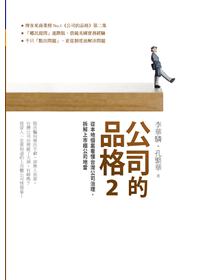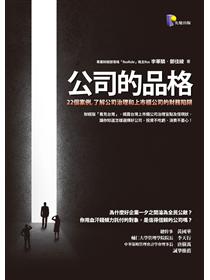 收藏
收藏

 二手徵求有驚喜
二手徵求有驚喜
定價:NT$ 1129
優惠價: 93 折, NT$ 1050
運送方式:超商取貨、宅配取貨
銷售地區:全球
訂購後,立即為您進貨



Protecting Free Trade is the story of a paradox that both limited and stimulated Hong Kong's post-war economy. In order to preserve its access to open markets, Hong Kong was obligated by international agreements to accept restraints on its exports; and in order to sustain growth, Hong Kong had to subject its largest industry — textiles — to a massive network of restrictions. Protecting Free Trade examines how Hong Kong handled, by negotiation, attempts by developed economies to limit international trade through protective measures. The central argument is that, far from stifling Hong Kong's industry, restrictive international trade agreements became a stimulus for economic success by creating a sellers' market in which Hong Kong was the dominant supplier. The book is also a personal memoir by someone who was deeply involved in policy formulation.
Lawrence Mills was deeply involved in many of the critical economic issues that Hong Kong faced in the 50 years leading up to its return to China in 1997. In Protecting Free Trade he tells the inside story of how Hong Kong held on to its vulnerable and volatile role as a global centre of trade, despite the constant pressures to limit its exports, and its sometimes fractious relationships with the UK, the USA, and Europe. He illustrates the political savvy with which negotiators distanced Hong Kong from the UK to gain the support of developing countries as a countervailing force in international trade, but not to an extent that might upset China. He explains why, for the strategic defence of its interests, Hong Kong depended on international trade arrangements and bilateral restraint agreements.
Protecting Free Trade also examines the role of the Trade and Industry Departments, which Mills headed, and of their principal advisory boards. It details the bureaucratic systems, including controversial quota controls, that were necessary to give Hong Kong's businessmen stability and room for manoeuvre in fast-evolving markets. Mills also assesses the charge that the department was too close to the constituency that it served.
作者簡介:
Lawrence Mills worked for 23 years in the Hong Kong government's trade and industry departments, including eight years as Hong Kong's Chief Trade Negotiator.
退換貨說明:
會員均享有10天的商品猶豫期(含例假日)。若您欲辦理退換貨,請於取得該商品10日內寄回。
辦理退換貨時,請保持商品全新狀態與完整包裝(商品本身、贈品、贈票、附件、內外包裝、保證書、隨貨文件等)一併寄回。若退回商品無法回復原狀者,可能影響退換貨權利之行使或須負擔部分費用。
訂購本商品前請務必詳閱退換貨原則。 收藏
收藏

 二手徵求有驚喜
二手徵求有驚喜
優惠價: 93 折, NT$ 1050 NT$ 1129
運送方式:超商取貨、宅配取貨
銷售地區:全球
訂購後,立即為您進貨
Protecting Free Trade is the story of a paradox that both limited and stimulated Hong Kong's post-war economy. In order to preserve its access to open markets, Hong Kong was obligated by international agreements to accept restraints on its exports; and in order to sustain growth, Hong Kong had to subject its largest industry — textiles — to a massive network of restrictions. Protecting Free Trade examines how Hong Kong handled, by negotiation, attempts by developed economies to limit international trade through protective measures. The central argument is that, far from stifling Hong Kong's industry, restrictive international trade agreements became a stimulus for economic success by creating a sellers' market in which Hong Kong was the dominant supplier. The book is also a personal memoir by someone who was deeply involved in policy formulation.
Lawrence Mills was deeply involved in many of the critical economic issues that Hong Kong faced in the 50 years leading up to its return to China in 1997. In Protecting Free Trade he tells the inside story of how Hong Kong held on to its vulnerable and volatile role as a global centre of trade, despite the constant pressures to limit its exports, and its sometimes fractious relationships with the UK, the USA, and Europe. He illustrates the political savvy with which negotiators distanced Hong Kong from the UK to gain the support of developing countries as a countervailing force in international trade, but not to an extent that might upset China. He explains why, for the strategic defence of its interests, Hong Kong depended on international trade arrangements and bilateral restraint agreements.
Protecting Free Trade also examines the role of the Trade and Industry Departments, which Mills headed, and of their principal advisory boards. It details the bureaucratic systems, including controversial quota controls, that were necessary to give Hong Kong's businessmen stability and room for manoeuvre in fast-evolving markets. Mills also assesses the charge that the department was too close to the constituency that it served.
作者簡介:
Lawrence Mills worked for 23 years in the Hong Kong government's trade and industry departments, including eight years as Hong Kong's Chief Trade Negotiator.
退換貨說明:
會員均享有10天的商品猶豫期(含例假日)。若您欲辦理退換貨,請於取得該商品10日內寄回。
辦理退換貨時,請保持商品全新狀態與完整包裝(商品本身、贈品、贈票、附件、內外包裝、保證書、隨貨文件等)一併寄回。若退回商品無法回復原狀者,可能影響退換貨權利之行使或須負擔部分費用。
訂購本商品前請務必詳閱退換貨原則。
※ 二手徵求後,有綁定line通知的讀者,
該二手書結帳減5元。(減5元可累加)
請在手機上開啟Line應用程式,點選搜尋欄位旁的掃描圖示
即可掃描此ORcode
|
||||||||||||||||||
|
||||||||||||||||||
|
||||||||||||||||||













